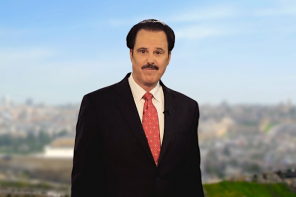Here’s a curious fact. When I started thinking about countries where religion and politics are inextricably intertwined, all the examples that first came to mind started with the letter “I”: Iraq, Israel, India, Indonesia. Of course I quickly thought of exceptions to the rule, like Lebanon, Sri Lanka—and the United States of America.
Europeans tell us that they don’t understand why we insist on bringing religion into politics. Their situation is certainly different from ours; according to a 2005 poll, only about half of the people in EU member countries “believe in a god,” a number shockingly lower than anything we find here in the United States. But we might remind our European friends that a political arena free from religious concerns is the exception to the global rule. Even among their own “I” nations, while Iceland’s politics may maintain a secular purity, Ireland and Italy are decidedly more complicated cases.
Which is all prelude to reflecting on this electoral season’s “pastor wars,” now mercifully in abeyance, but liable to heat up again at any time. Linking one’s political fortunes to a preacher is bound to be risky business. Pulpits are supposed to be places where controversial words are uttered. Who would want to attend a church, mosque, temple, or synagogue where the sermons never risked offending anyone? They would be as bland and superficial as they would be boring. So a pastoral endorsement or connection is an utterly unpredictable animal that can jump out and bite you at any moment, as both Barack Obama and John McCain have discovered all too painfully.
Anti-McCainites who follow politics closely had been complaining for months of an unfair double standard. Obama was pilloried on every front page for his connection to a controversial clergyman, but McCain was getting off scot free for his link to an equally (or perhaps even more) controversial right-wing preacher, Rev. John Hagee, whose support he sought and whom he publicly thanked last year for his “spiritual guidance to politicians like me.” Finally, the outrages of Hagee pushed the McCain campaign one step over the line, leading to the formal break.
But one interesting piece of this story has received too little comment: Hagee’s widely documented anti-Catholic bias did not move McCain to break with him. Only when Hagee sermons surfaced that offended Jews did McCain make his move.
It’s long been reported that Hagee has publicly called the Roman Catholic Church “the great whore” and a “false cult system.” Recently Hagee tried to backpedal and said the Church was only a “great whore” sometimes. But he has not retracted a claim he made years ago that Catholicism is a “Godless theology of hate.” Through it all, the McCain campaign apparently saw more pluses than minuses in keeping the Hagee endorsement. The break came only when a Hagee sermon appeared that called Hitler an agent of God, hunting down Jews to force them to go where God wants them: the land of Israel.
According to the New York Times, “Rabbi Eric Yoffie, president of the Union for Reform Judaism, the country’s largest branch of Judaism, said that while he did not consider Mr. Hagee an anti-Semite, he found a reading of the Bible that would include a prophecy of Hitler to be ‘obscene.’”
He is not the first rabbi to say so. Over 40 years ago, Rabbi Richard Rubenstein became famous (or notorious, depending on one’s point of view) as the leading Jewish voice in the “Death of God” theology movement. Rubenstein rejected the traditional biblical concept of God because, he said, logical consistency would require a believer to say that all historical events are ultimately caused by the will of God, including Hitler’s anti-Jewish Holocaust. The idea that Hitler was an agent of God was both absolutely orthodox Jewish theology, Rubenstein wrote, and “too obscene” for him to accept. So the only intellectually honest move for him was to reject the notion of a God who guides history.
Sometime in the 1980s, I was leaving a restaurant with Rubenstein when he said quite casually that the Jewish people had rejected his theological view and they were right to do so. Before I could ask him why they were right, he headed off in another direction and I never saw him again. But he was surely right on one point. As Rabbi David Saperstein noted in the Washington Post (in his own discussion of the Hagee affair), there were some orthodox Jews who explicitly said that Hitler was an agent of God.
Saperstein calls these Jews “theological extremists” and finds their belief “mind boggling” and “repugnant.” He also laments that “it had become common to find Jewish leaders joining in Pastor Hagee’s ‘Salute to Israel’ events around the country and paying public tribute and homage to the pastor for his efforts” to aid Israel (like Senator Joe Lieberman, for example, who plans to speak at an upcoming Hagee conference).
So Hagee’s views find support in two schools of Jewish thought, a still popular one that says “Any friend of Israel is a friend of mine” and a now less popular one that claims that a faithful reading of the Bible leads to an inescapable conclusion: Hitler was an agent of God. In his now infamous sermon, Hagee acknowledged that this would offend some people. Then he added: “Well, dear heart, be offended: I didn’t write it. Jeremiah wrote it. It was the truth and it is the truth.”
Which raises the question: What should be more offensive to a political candidate, a claim that God is fully in charge of history, or a claim that the biblical text, not human thought, is the source of truth? It’s the latter that violates the spirit, and perhaps the letter, of the first amendment’s guarantee of separating church and state. If you believe God is responsible for everything, that belief alone does not tell you anything about what laws or policies the state should adopt. If you believe in the literal truth of the Bible, it tells you plenty about laws and policies.
Of course these things are decided on practical political, not theological, grounds. Which leads to another interesting observation: In the 2004 election, there were nine times as many Catholic voters as Jewish voters. So why did McCain stick with Hagee when his blatant anti-Catholic bigotry was made public, and break with Hagee only over comments that implied no criticism of the Jewish religion, though they did offend many Jews?
The obvious answer is that McCain is more worried about the small Jewish vote than the much larger Catholic vote. This becomes even more curious when you consider that swing states like Ohio, Pennsylvania, and Missouri have sizable Catholic votes, while the Jewish vote is concentrated in states that are almost bound to go Democratic (New York, California, Illinois). Among the big swing states, only Florida supposedly has a crucial Jewish vote. Yet it turns out to be only about 5%. Surely the Catholic vote even in Florida is bigger than that.
Why do McCain and his campaign strategists think that they can risk offending Catholics more than they can risk offending Jews? What does that tell us about their assessment of the political landscape? Perhaps internal polling showed that Hagee’s endorsement was not helping McCain among evangelicals. Perhaps Hagee was becoming more trouble than he was worth, and this was just the straw that broke the camel’s back. Perhaps McCain’s people, like so many others, overestimated the influence of Jewish opinion on electoral outcomes.
I wish I knew the answer. I imagine no one outside McCain’s inner circle knows the answer. But in a nation where religion and politics are inextricably intertwined, for better or for worse, more people should at least have asked the question.




